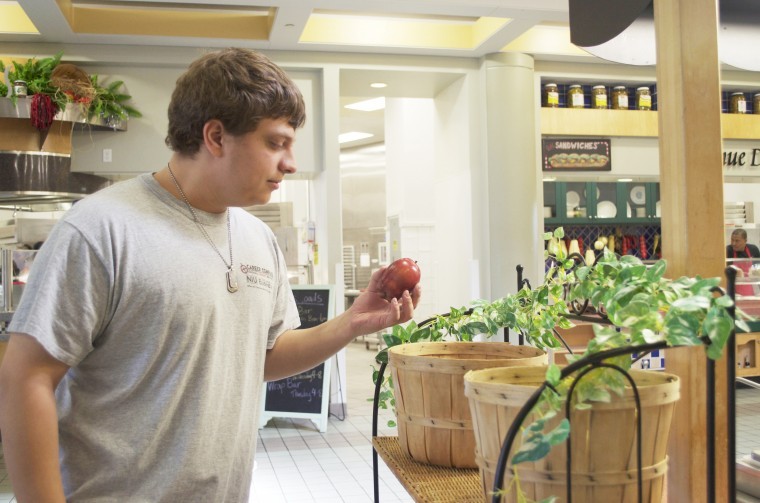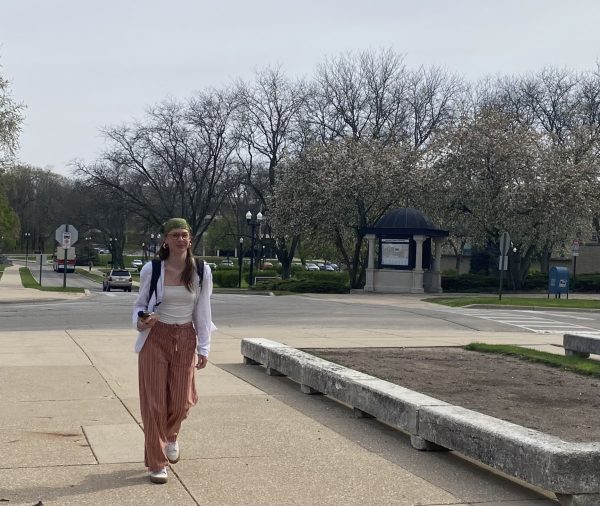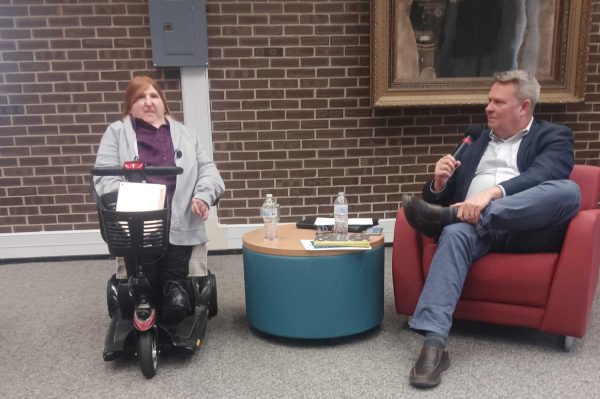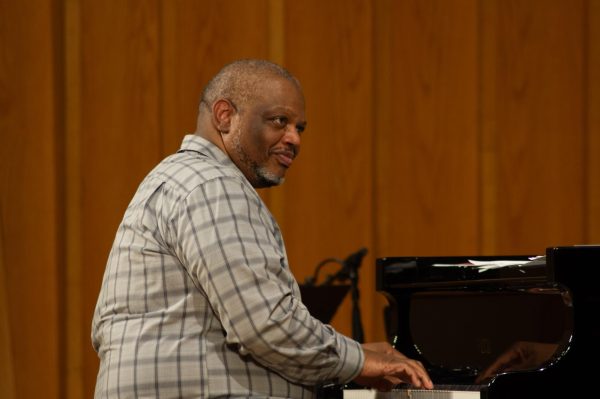Rec center to host intuitive eating workshop
Former Northern Star Sophomore accounting major Goran Ikanovic picks up an apple in the Stevenson dining hall. Stevenson’s dinning center has a variety of healthy food choices for students to choose from.
November 13, 2021
DeKALB – The NIU Recreation Center will be hosting a workshop aimed at helping students develop a healthy relationship with food, with a focus on intuitive eating and body positivity.
The “Food Fight: Win Your Inner Battle with Intuitive Eating” workshop will be held from 5 to 6 p.m. on Nov. 17 in the NIU Recreation Center with the option of attending virtually, according to the NIU website.
This is the first year the workshop has been held, and this will be the third session of the workshop this fall semester, said Isabella Fleps, an NIU nutrition graduate assistant at the NIU Recreation Center.
The workshop will cover the basics of intuitive eating, the ten principles of intuitive eating, mindful eating, body positivity and body acceptance tips, Fleps said.
“Intuitive eating is the idea that you are eating what you want to eat, you are honoring your hunger, you are honoring your fullness,” Fleps said. “You are giving in to your cravings and overall finding a good relationship with food and ending dieting.”
The goal of intuitive eating is to feel good physically and mentally toward the foods that are eaten, rather than the idea or goal of losing or achieving a particular weight, said Meg Burnham, registered dietician, nutritionist and nutrition education coordinator at the NIU Recreation Center.
“At this age, a lot of students are in a new environment at school and are on their own for the first time, so they are making their own food choices,” Fleps said. “I think it’s important to get students out of the cycle of dieting and getting them a good relationship with food to set them up to be successful in the future, and overall have that good relationship with food for their mental health and overall well-being.”
Participants of the previous sessions this semester have been welcoming and understanding, creating an environment for individuals to talk about their issues and struggles and be able to receive tips on how to get better and build a positive relationship with food, Fleps said.
“We have a full-blown workshop series in the spring that will work people through the whole process of intuitive eating, being more mindful with food, learning how to learn fullness cues, and really what it means to be eating in a way that feels good,” Burnham said.













